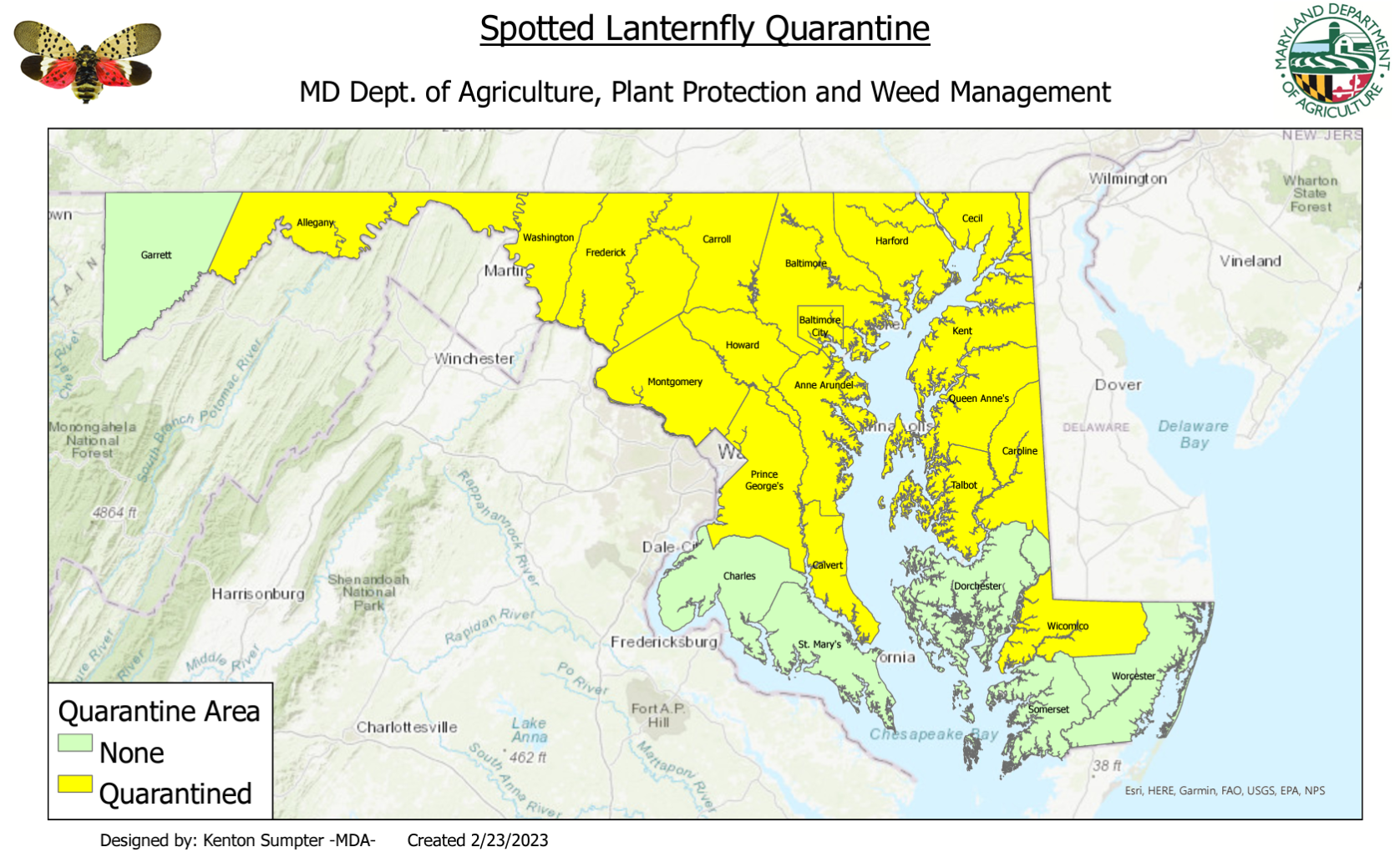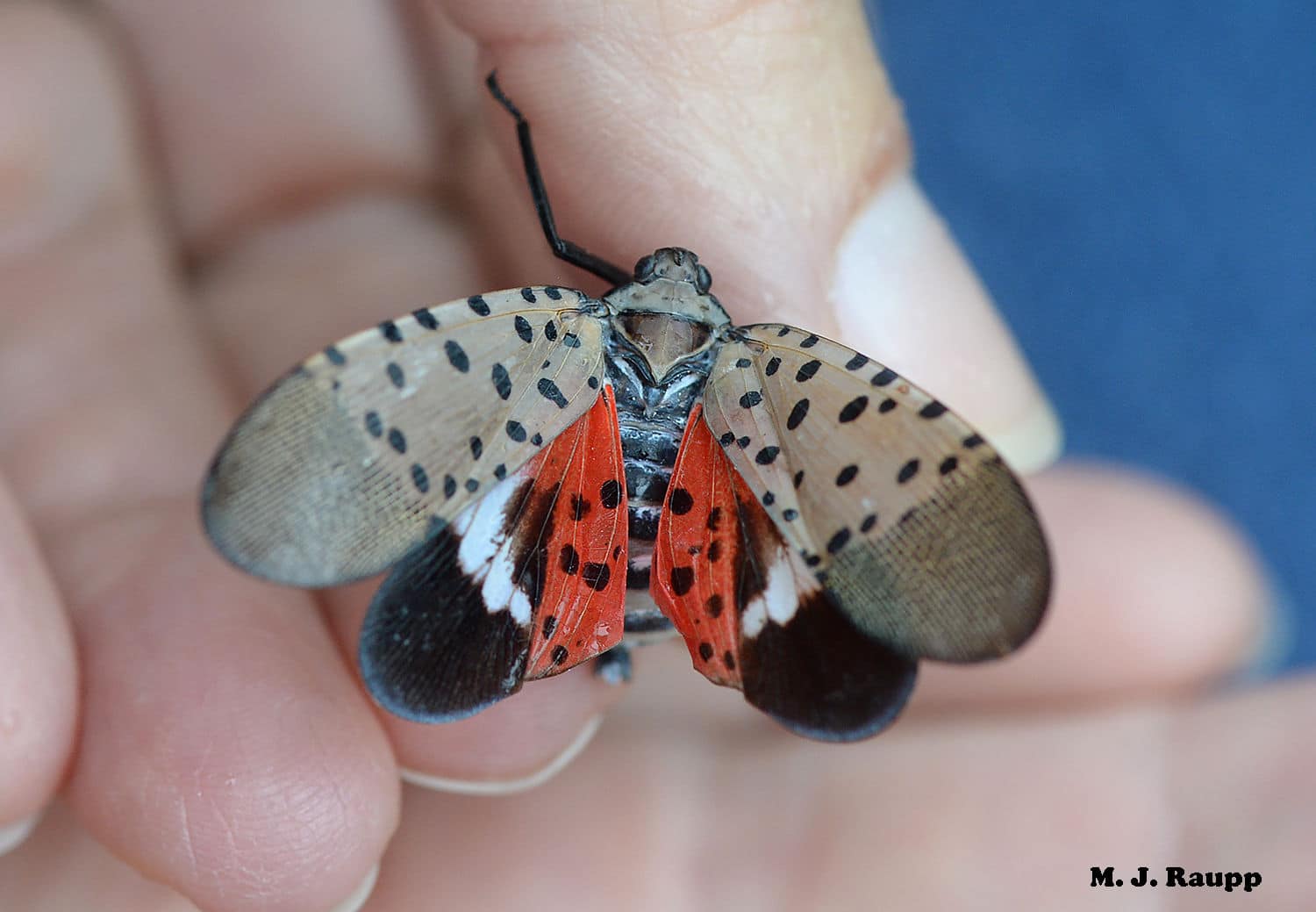To try to curb the spread and infestation of these “known hitchhikers,” Maryland has expanded its spotted lanternfly quarantine zone effective immediately.
The areas included in the quarantine zone are Allegany, Anne Arundel, Baltimore, Calvert, Caroline, Carroll, Cecil, Frederick, Harford, Howard, Kent, Montgomery, Prince George’s, Queen Anne’s, Talbot, Washington and Wicomico counties, and the City of Baltimore, the state’s agriculture department said on Monday.

The quarantine restricts the movement of “regulated articles that might contain the spotted lanternfly in any of its life stages, including egg masses, nymphs, and adults.”
Examples of regulated articles include landscaping, remodeling, or construction waste; packing materials such as wood boxes or crates; plants and plant parts; vehicles; and other outdoor items.

Businesses and agencies that deal with these items and have to move them within or from the quarantine zone must have a specialized permit, which they can get through a free online training course and exam through PennState Extension.
“The spotted lanternfly continues to be a destructive invasive species that has negatively impacted agriculture operations throughout the mid-Atlantic region,” said Maryland Agriculture Secretary Kevin Atticks.
The spotted lanternfly feeds on more than 70 different types of crops and plants, including grapes, hops, apples, peaches, oak, pine and many others. The agriculture department said it poses a “major threat” to the region’s agricultural industries.
A “known hitchhiker,” the spotted lanternfly has spread to Connecticut, Delaware, Indiana, New Jersey, New York, Ohio, Virginia and West Virginia.
The Fairfax County Park Foundation in Virginia recently received a $20,000 grant from Dominion Energy Charitable Foundation to help with efforts to remove an invasive tree that hosts spotted lanternflies.
Spotted lanternfly sightings in Maryland can be reported through the state’s Department of Agriculture online survey.








